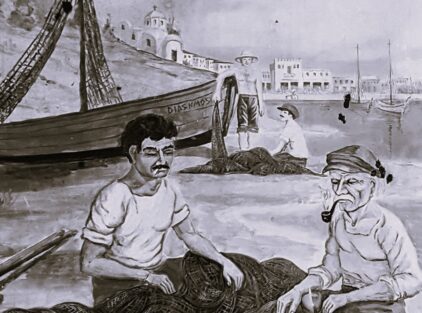by Christos Zabounis
Mother Russia was the first to worry. By Kremlin’s order, all government communications, especially military communications, were immediately cut off. The social network created by two Russians, Pavel and Nikolai Durov, was no longer secure. The reason? Pavel’s arrest at Paris “Le Bourget” airport by the French police. He was flying there from Baku, Azerbaijan, with one theory suggesting he may have met President Putin there. Another theory he supported during his four-day detention was that he is working with D.G.S.I. (Direction Generale de la Securite Interieure), and thanks to his help “lives were saved”, as he characteristically said, from the prevention of terrorist attacks. This statement of his indirectly reveals, firstly, that terrorist organizations communicate with Telegram, and, secondly, that it cooperates with secret services. With 1 billion users and a personal fortune estimated at $14 billion, Pavel Durov, like the rest of the tycoons of the digital age, seems to have considered himself untouchable. President Macron had granted him, through a fast track procedure, French citizenship, as had the president of the United Arab Emirates. However, a video of pedophilia circulating on his channel opened the bag of Aiolos, so that he was charged with a series of charges, apart from non-cooperation with the Authorities. A 39-year-old judge who had taken over the case had sent him 2,460 (!) requests for information to his company’s registered headquarters in the British Virgin Islands. None of his associates took the time to answer. The search warrant was followed by the arrest warrant. The timing was not the best, because Telegram was preparing to be listed on the New York Stock Exchange. A multitude of investors, including R.D.I.F. (Russian Direct Investment Fund), had bought the bonds it had issued, with the expectation of converting them into shares. The ban on leaving the country and the obligation to present himself twice a week to the police station of his temporary residence will probably delay the aforementioned development.













